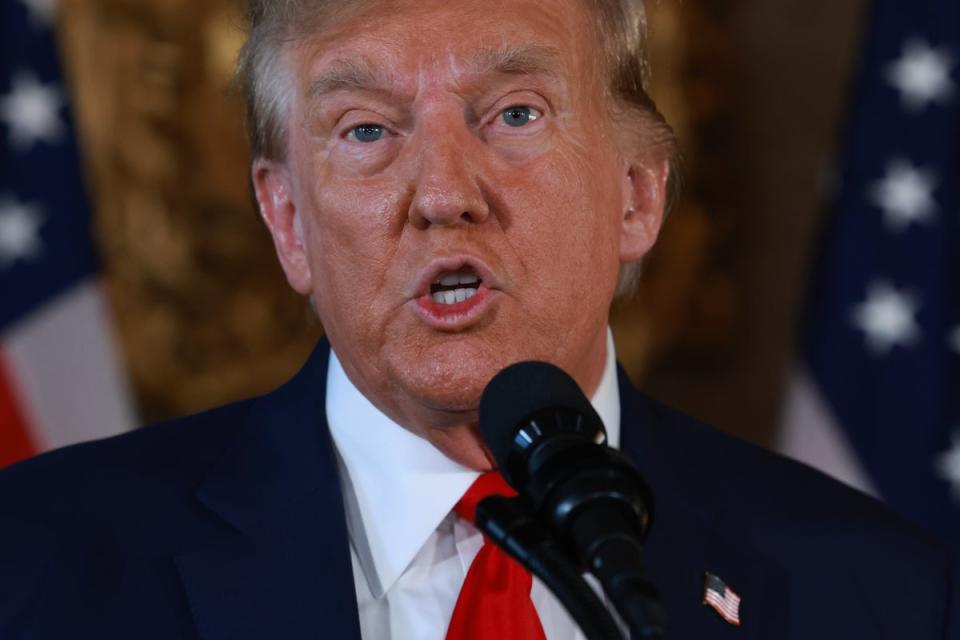Trump tried to ban TikTok, now he’s joined it: So what changed?

Donald Trump has joined social media platform TikTok after previously trying to get it banned on national security grounds.
The former president garnered over three million followers in just two days after joining the app on Saturday, posting a launch video on his account showing him greeting fans at an Ultimate Fighting Championship fight in Newark, New Jersey.
“It’s an honor,” he said in the video, which now has over 56 million views. The video ends with Trump telling the camera: “That was a good walk-on, right?”
His decision to join the platform has widely been regarded as an attempt to reach out to young Gen Z voters, with whom Joe Biden is leading by six points in a head-to-head matchup, as he makes his third bid for the White House.
But the move represents a major departure from Trump’s previous stance on the app.

What has Trump said in the past about TikTok?
“As far as TikTok is concerned, we’re banning them from the United States,” then-president Trump declared to reporters aboard Air Force One in July 2020.
The very next month, Trump tried to ban TikTok through an executive order that said “the spread in the United States of mobile applications developed and owned” by Chinese companies was a national security threat. TikTok is owned by the China-based tech giant ByteDance.
“TikTok automatically captures vast swaths of information from its users, including Internet and other network activity information such as location data and browsing and search histories,” the order read. “This data collection threatens to allow the Chinese Communist Party access to Americans’ personal and proprietary information — potentially allowing China to track the locations of Federal employees and contractors, build dossiers of personal information for blackmail, and conduct corporate espionage.”
Both the FBI and the Federal Communications Commission have warned that ByteDance could share user data such as browsing history, location and biometric identifiers with China’s government. However, TikTok has previously insisted that it does not share data with the Chinese government and successfully overturned Trump’s ban when the company sued in court.
Since then, many Republicans, including former South Carolina Governor Nikki Haley and former Vice President Mike Pence, have supported a ban on TikTok, owing to its Chinese ownership, with the United States Army and Navy banning TikTok on government devices in January 2020.
Meanwhile, several states have unsuccessfully tried to ban the app, including Montana.
But Trump appeared to alter his stance on the app earlier this year when he said that while he believes it poses a risk to national security, he opposes banning it because doing so would help its rival, Facebook, which he continues to criticize over his 2020 election loss to Biden.
“I don’t want Facebook, who cheated in the last Election, doing better,” Trump wrote on Truth Social earlier this year, offering zero evidence of the alleged “cheating.” “They are a true Enemy of the People.”
“We will leave no front undefended and this represents the continued outreach to a younger audience consuming pro-Trump and anti-Biden content,” Trump spokesman Steven Cheung said in a statement about the campaign’s decision to join the platform.
“There’s no place better than a UFC event to launch President Trump’s Tik Tok, where he received a hero’s welcome and thousands of fans cheered him on,” he added.
Biden’s election campaign joined TikTok in February and has amassed over 340,000 followers. The campaign has tried to work with influencers despite the president signing a bill that would ban the app, used by 170 million Americans, if its Chinese owner ByteDance fails to divest it.
ByteDance is challenging in courts the law that requires it to sell TikTok by next January or face a ban.

 Yahoo News
Yahoo News 
